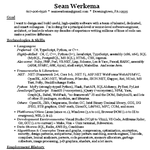The recent hullabaloo over Roald Dahl’s works being edited censored has me utterly incensed. Sure, Roald Dahl was kind of a terrible person, and he wrote several things I too find offensive. But that gives no-one other than Roald Dahl himself the right to censor his writing. He wrote what he wrote, and if you don’t like it, read something else. There are plenty of sanitized, safe, bland, milquetoast books out there if you don’t like having your sensitivities offended.
But it occurred to me that the reason that Puffin Books can get away with this censorship is that they (and Netflix) own the copyright, and by law copyright terms are ridiculously long. It’ll be four decades yet before anyone else can re-publish the stories the way Dahl wrote them.
I don’t want to be a part of this.
But I’m a creator: I make things, I write things, I draw things, I code things, I build things. I’m constantly contributing to a system I never signed up for. In my life a ton of work has been fixed in a tangible medium by me, to use the legal copyright terminology. Per copyright law, I hold the rights to a mountain of content, and because I keep creating, the mountain keeps getting bigger. These very words will join that pile, and if I die just after writing this sentence, my heirs or estate would hold the copyright in it for another 70 years — these words would enter the public domain in February 2093, which is utterly insane.
So I’m making an addendum right here to my last will and testament, and as soon as I’m done typing it, I’m going to print a copy and sign it to give it the force of law. And this addendum is simply this:
My works — all of them — will enter into the
public domain exactly one year after my death.
Not 70 years. One year. Every story, every essay, every picture, every pixel, every line of code, every last byte, everything I’ve made that could possibly be copyrightable and in which I hold the copyright will be up for grabs to the world one year later.
Does the world want it? Probably not, but you all get it anyway. Once I’m gone, my family gets a year to prepare for its release, and then it belongs to everybody, the whole kit and kaboodle. Anyone can have whatever debates you want over what I might have intended for some picture or some character or some design or whatever, but everybody is free to put their own spin on them all after the one-year mark. Once I’m gone, I don’t have a say in it anymore.
Presumably, I still have a lot of years left in me, and I can state my intentions and control my works for a few more decades. But whenever I’m gone, there’s one year on my copyrights left, and that’s it.
The copyright system is pretty broken, but with this, I believe I’m helping in my own small way to help right the ship. Maybe Congress will have some sense someday and shorten copyright terms to match, but until they take care of it, this declaration will have to do.
